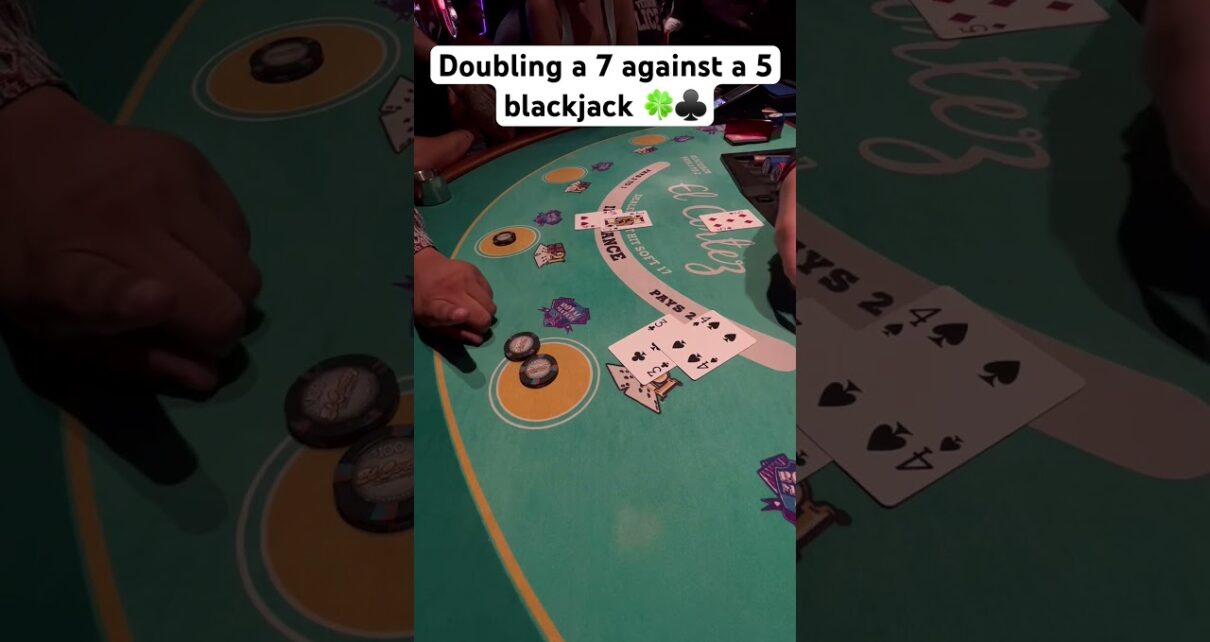Would You Double Down or Just Hit? Navigating Blackjack Decisions at the Casino
Blackjack is not just a game of chance; it’s a thrilling blend of strategy, psychology, and a hint of luck. Whether you’re a novice stepping into the world of casino gaming or a seasoned player eyeing your next big win, understanding your options when playing blackjack can make a significant difference to your gaming experience and potential payout.
One of the most crucial decisions you’ll face at the blackjack table is whether to double down or just hit. This choice can significantly impact the outcome of your hand, and knowing when to use each option is key to maximizing your winnings. Let’s break down what these terms mean and the strategy behind making this decision.
Understanding the Basics
Before diving into the decision-making process, let’s revisit the basic rules of blackjack. The objective is simple: get as close to 21 without going over, all while beating the dealer’s hand. Players are dealt two cards, and based on the dealer’s visible card, they can choose to hit (take another card) or double down (double their initial wager while receiving only one additional card).
The Hit Option
"Hitting" is straight-forward—when you feel your hand could benefit from another card, you simply request one from the dealer. It’s an excellent strategy if you have a low hand value or if you think you could improve your total. However, caution must be exercised: the goal is to stay under 21, as exceeding this value results in a bust, which automatically loses the hand.
When to Hit:
- When your total is less than 12, as you are unlikely to bust.
- If you have a soft total (an Ace counted as 11) that is 13-17 and the dealer is showing a high card.
- When the dealer has a weak card (like 4, 5, or 6) that could potentially lead to a bust.
The Double Down Option
Doubling down is a more aggressive strategy in blackjack. By doubling your initial bet after receiving your first two cards, you indicate confidence in your hand’s potential. It’s important to note that you will receive only one more card, which could either make or break your chances of winning.
When to Double Down:
- When you have a total of 11, as there is a high chance of drawing a 10 or face card, resulting in 21.
- When your total is a soft 16, 17, or 18, against a dealer’s weak card (like 4, 5, or 6).
- If you have a total of 10, especially if the dealer shows a lower card.
The Psychology of the Game
In addition to mathematical strategy, understanding the psychology at play in a blackjack game can inform your decisions. Observing the dealer’s face card and other players’ actions can offer insight into the game dynamics. A player might hesitate to hit or double down based on their mood or the table environment, but successful players maintain their focus on strategy.
The Risks and Rewards
Both options come with their own set of risks and rewards. Choosing to hit increases the chance of improving your hand, but also raises the risk of busting. On the other hand, doubling down can maximize your winnings when the odds are in your favor, but it can also amplify losses if the next card doesn’t work out.
Conclusion
Ultimately, whether you choose to double down or just hit in blackjack will depend on your hand, the dealer’s visible card, and your overall strategy. It’s important to familiarize yourself with the basic strategy charts available to improve your decision-making. Remember, while luck plays a role in blackjack, informed decisions rooted in strategic thinking can significantly enhance your gaming experience.
As you step into the casino, the choice between doubling down and hitting is just one of the exciting moments that blackjack offers. Embrace the game, engage with fellow players, and most importantly, have fun! Whether you end up walking away with a pile of chips or just a memorable experience, the thrill of the casino awaits. Happy gaming!

